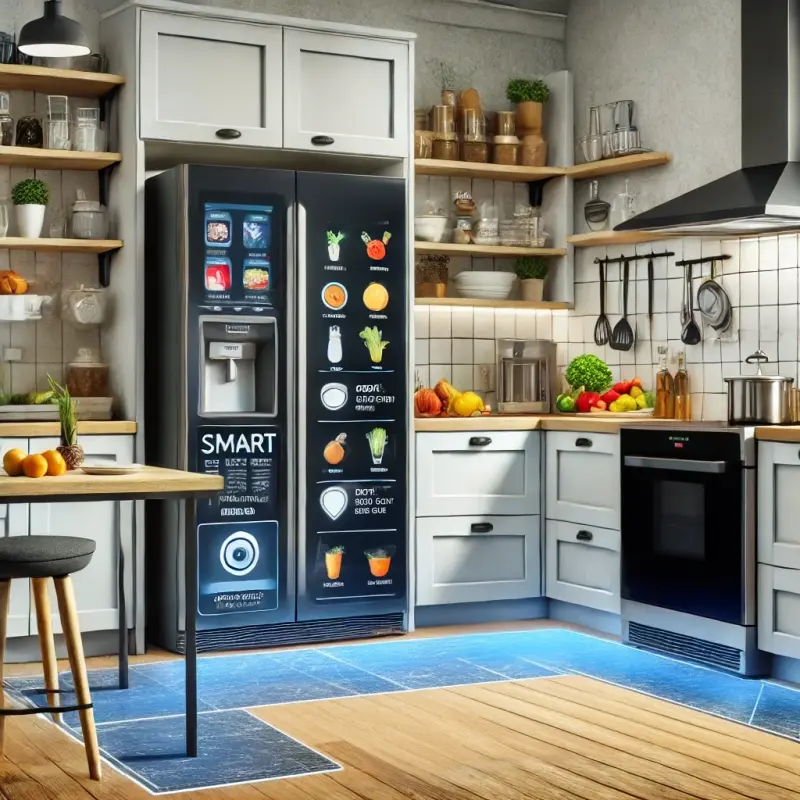Introduction: The Role of Technology in Modern Kitchens
In recent years, kitchen technology has undergone a dramatic transformation, making everyday cooking tasks faster, more efficient, and even enjoyable. One of the most exciting advancements is the emergence of personalized systems for managing household appliances, which seamlessly integrate various kitchen devices to create a more connected and intelligent cooking environment. These smart systems are designed to take the guesswork out of meal preparation, reduce time spent on routine tasks, and enhance the overall cooking experience.
As smart home technology continues to evolve, many households are now adopting personalized kitchen systems that cater to their unique cooking needs. These systems offer intuitive control over kitchen appliances, ensuring that each device operates at its optimal settings based on the user’s preferences, dietary requirements, and cooking style. But how exactly do these systems work, and what benefits do they bring to the kitchen? In this article, we will explore the impact of personalized systems on kitchen management and how these innovations are making cooking easier and more enjoyable.
The Rise of Smart Kitchens
The concept of a "smart kitchen" isn't new, but in recent years, the integration of Internet of Things (IoT) technology into kitchen appliances has gained significant traction. This shift has been driven by the desire to make everyday tasks more convenient and efficient. Smart fridges, ovens, dishwashers, and even faucets can now be controlled remotely through smartphone apps, voice commands, or smart home hubs. But personalized systems take this convenience a step further.
Unlike traditional appliances, which may offer basic functionality like temperature settings and timers, personalized kitchen management systems use data and AI to adapt to individual user needs. For example, a personalized oven can automatically adjust cooking temperatures and times based on the type of dish being prepared. Similarly, smart refrigerators can track inventory and suggest recipes based on available ingredients.
The integration of artificial intelligence into these systems allows them to learn from user behavior, adapting to cooking preferences over time. This creates a truly personalized experience, where the system is not only reactive but also proactive in making cooking more efficient and enjoyable.
Personalized Cooking Assistants: A Game Changer for Home Chefs
One of the key features of personalized kitchen management systems is the introduction of virtual cooking assistants. These AI-powered assistants can guide users step by step through recipes, adjust cooking settings in real time, and even offer suggestions based on dietary preferences. Imagine cooking a new recipe while your oven adjusts the temperature automatically, your fridge suggests ingredients you might need, and your stove ensures the pot is at the right heat.
For example, a personalized cooking system might recognize that you typically prefer your steaks cooked medium-rare and adjust the oven or grill settings accordingly without you needing to manually intervene. This level of customization saves time and reduces the chances of errors, making it particularly beneficial for beginners or those who find themselves juggling multiple tasks at once.
In addition to offering convenience, these assistants can also promote healthier eating habits by tracking nutritional content and suggesting recipes that align with a person’s specific dietary goals. Whether you're vegan, gluten-free, or following a keto diet, a personalized kitchen system can help you stay on track with your meal planning.
Smart Appliances: More Than Just Convenience
While personalized systems are often associated with convenience, they also significantly enhance the functionality and longevity of appliances. Smart kitchen devices are capable of communicating with one another, ensuring that each appliance operates efficiently, reducing energy waste, and prolonging the life of your appliances.
For instance, a smart fridge that monitors the freshness of produce can remind you when items are nearing expiration, preventing food waste and helping you plan meals better. Similarly, a smart dishwasher can optimize wash cycles based on the load size and type of dishes, reducing water and energy consumption.
One of the most innovative features of smart appliances is their ability to provide real-time feedback. If something goes wrong, like a malfunction or a potential issue with the appliance, personalized systems can send notifications to your smartphone, allowing you to address the problem before it escalates. This proactive maintenance ensures that your kitchen remains functional and reliable, even during the busiest of cooking times.
